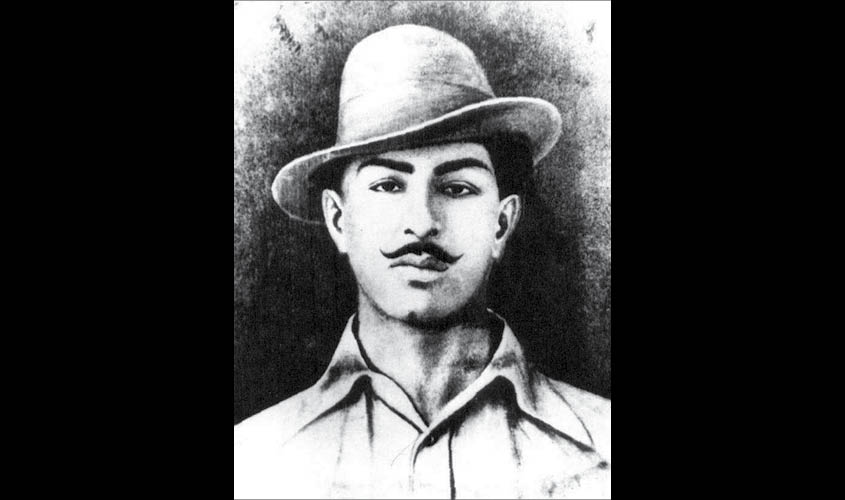On 4 October 1930, Bhagat Singh wrote to his father a breath-taking letter.
Yesterday I finished reading, “Bhagat Singh: A Jail Notebook and Other Writings”, complied, with an introduction by Professor Chaman Lal, who teaches at Jawaharlal Nehru University. The book’s 14th edition came out last month.
Bhagat Singh is an iconic figure. He was Jat Sikh, born on 28 September 1907 at Chak No 105 of Lyallpur Banga (now in Pakistan). Bhagat Singh was a revolutionary. He spoke and wrote in four languages, including Sanskrit. His English was flawless. He was executed in Lahore jail on 23 March 1931. His father, Sardar Kishan Singh wrote to the Tribunal, claiming that his son was innocent..
On 4 October 1930, Bhagat Singh wrote to his father a breath-taking letter. I have omitted one paragraph of the letter.
“My Dear Father,
I was astonished to learn that you had submitted a petition to the members of the Special Tribunal in connection with my defence. This intelligence proved to be too severe a blow to be borne with equanimity. It has upset the whole equilibrium of my mind. I have not been able to understand how you could think it proper to submit such a petition at this stage and in these circumstances. In spite of all the sentiments and feelings of a father, I don’t think you were at all entitled to make such a move on my behalf without even consulting me. You know that in the political field my views have always differed with those of yours. I have always been acting independently without having cared of your approval or disapproval.
I hope you can recall to yourself that since the very beginning you have been trying to convince me to fight my case very seriously and to defend myself properly. But you also know that I was always opposed to it. I never had any desire to defend myself and never did I seriously think about it. Whether it was a mere vague ideology or that I had certain arguments to justify my position, is a different question and that cannot be discussed here.
You know that we have been pursuing a definite policy in this trial. Every action of mine ought to have been consistent with that policy, my principle and my programme. At present the circumstances are altogether different, but had the situation been otherwise, even then I would have been the last man to offer defence. I had only one idea before me throughout the trial, i.e., to show complete indifference towards the trail in spite of the serious nature of the charges against us. I have always been of opinion that all the political workers should be indifferent and should never bother about the legal fight in the law courts and should boldly bear the heaviest possible sentences inflicted upon them. They may defend themselves but always from purely political considerations and never from a personal point of view. Our policy in this trial has always been consistent with this principle; whether we were successful in that or not is not for me to judge. We have always been doing our duty quite disinterestedly.
Father, I am quite perplexed. I fear I might overlook the ordinary principles of etiquette and my language may become a little bit harsh while criticising or rather censoring this move on your part. Let me be candid. I feel as though I have been stabbed at the back. Had any other person done it, I would have considered it to be nothing short of treachery. But in your case, let me say that it has been a weakness—a weakness of the worst type.
This was the time where everybody’s mettle was being tested. Let me say, father, you have failed, I know you are as sincere a patriot as one can be. I know you have devoted your life to the cause of Indian independence, but why, at this moment, have you displayed such a weakness? I cannot understand.
In the end, I would like to inform you and my other friends; and all the people interested in my case, that I have not approved of your move. I am still not at all in favour of offering my defence. Even if the court had accepted that petition submitted by some of my co-accused regarding defence, etc. I would have not defended myself. My applications submitted to the Tribunal regarding my interview during the hunger strike, were misinterpreted and it was published in the press that I was going to offer defence, though in reality I was never willing to offer any defence. I still hold the same opinion as before. My friends in the Borstal Jail will be taking it as a treachery and betrayal on my part. I shall not even get an opportunity to clear my position before them.
I want that public should know all the details about this complication, and, therefore, I request you to publish this letter.
Your loving son
Bhagat Singh

